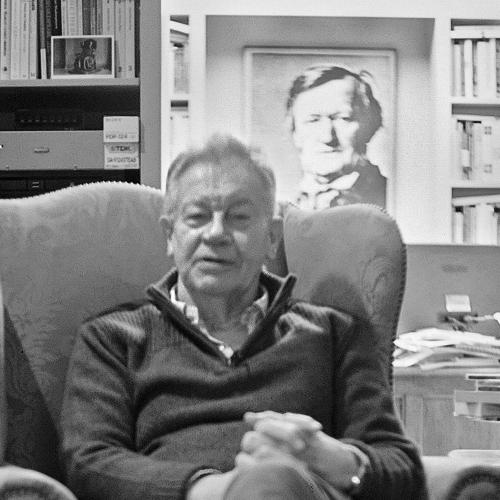COMPOSERS: Various
LABELS: Arthaus
WORKS: Traces to Nowhere – a film by Eric Schulz
PERFORMER: Carlos Kleiber, Plácido Domingo, Brigitte Fassbaender, Michael Gielen, Manfred Honeck, Veronika Kleiber
CATALOGUE NO: 101 553 (NTSC system; PCM stereo; 16:9 picture format)
There was, among the many myths about Carlos Kleiber, one that it would be impossible to make a documentary about him, because people who knew him well would close ranks and refuse to talk about him. Both these films, released more or less simultaneously, reveal how completely false that was.
Almost everyone who is interviewed gives the impression that they would be happy to go on talking about him indefinitely – indeed, it feels as if many of them did. But in accordance with time-dishonoured practice in the making of this kind of film, the directors assume that the viewer’s attention span is not more than five seconds on average, and in the case of I am Lost to the World, that becomes positively vertiginous. Faces and comments move along so fast that you need to be a speed reader to note who it was speaking, and in what capacity they knew Kleiber.
Traces to Nowhere is the better of the two films, if only because it is the longer. Also it has two invaluable contributors that I am Lost lacks – there is an enormous amount of overlap between the two, though no actual footage is duplicated; but sometimes they seem to be excerpting from the same interview. Traces has Veronika Kleiber, the conductor’s sister – a shrewd, loving, highly articulate woman who has many stories and comments that help to bring Kleiber to vibrant life. So, too, does Brigitte Fassbaender, who worked very often with the conductor as Octavian in R Strauss’s Der Rosenkavalier, which he conducted more often than any other opera. She watches footage of him rehearsing, and makes amused, affectionate and sometimes sharply critical remarks.
Traces is worth watching, and several times, for her alone. But actually there is an enormous amount more to fascinate, above all the rehearsal clips, where the young (40-year-old) Kleiber charms an orchestra into electrifying performances of Johann Strauss and Weber. I am Lost, on the other hand, has more of him rehearsing Wagner’s Tristan und Isolde in Bayreuth in 1976, and that is, for all the annoying voice-over and fragmentariness, the most thrilling footage of all. So ideally one needs both these films, which leave one stunned by the impact Kleiber made on performers and pained at the lack of fulfilment in his life, and the smallness of his legacy. Michael Tanner
